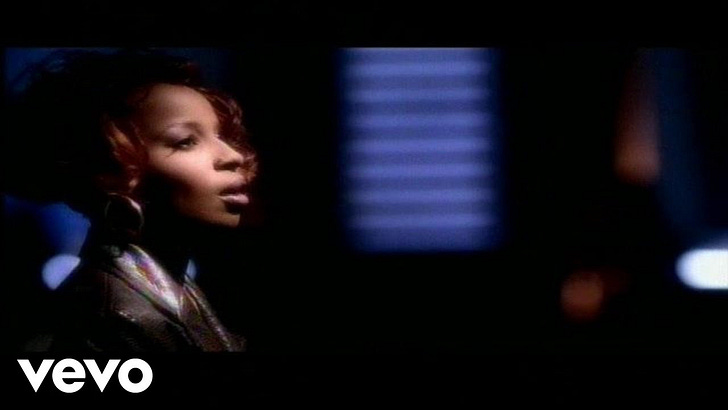AI Wants to Steal Your Ideas. And the White House Seems to Be Fine With That.
Are you hoping to make money as a creative person in this country? The abrupt firing of the head of the Copyright Office is the story you should watch.
A friend of mine once told me the story of submitting a script to a famous actor’s production company and then watching it be made into a movie without crediting him. To me, at the time a bit of a beaten-down magazine editor, I made a cynical assumption. “You got screwed,” I guessed.
He took a pull of his beer and laughed. Because he’d copyrighted the idea with the Writer’s Guild, he could prove that the script originated with him, and hired an attorney to send a demand letter to the production company. A nice settlement followed. “That’s how we bought our apartment. We raised two kids there!”
Copyright law in the United States is unique, complex, and on the whole has done its job pretty well. We’re one of the few nations in the world that enshrined in our constitution the idea that creators should have exclusive rights to their work to help push “progress in science and the useful arts,” but at the same time we don’t let creators copyright their specific ideas, only the specific expression of those ideas, so no one can lock down a whole artistic genre or the concept of something like a calculator. We’re a nation that protects the work of creative people so they’ll continue making creative work.
Digital culture has, of course, tested the boundaries of all this, because core to our national conception of copyright is the idea that if a work is adequately “transformative” — i.e. it takes an existing work and turns it into something with new meaning or purpose — it can be deemed “fair use.” This can be a very excellent thing, such as making it possible for Mary J. Blige’s “You Bring Me Joy” to turn Barry White’s “It’s Ecstasy When You Lay Down Next to Me” into a rolling, transcendent club classic.
We have a deep cultural loyalty to the “fair use” provision and the remixes it makes possible, in part because it makes our country so endlessly creative. It’s the DNA in every Saturday Night Live impersonation, in every South Park episode, in a billion bumper stickers.
But it’s also been slowly, progressively exploited by the world’s biggest technology companies in a way that has begun to flood the riverbank of creative progress the constitution’s framers hoped to protect. I wrote several weeks ago about the way the waters of Google Books slowly rose over the heads of authors around the world, how a federal judge might have pulled everyone to safety, and why it feels like such a betrayal of his logic that A.I. makers have now used that corpus of data to teach it to impersonate more or less any author you like.
That erosion of the spirit of copyright law has been so dramatic over the last few decades that we’ve watched early, revolutionary thinkers about it change their minds completely. In April I interviewed the original intellectual shaman of remix culture, Lawrence Lessig, for The Rip Current podcast. He’s the Harvard Law professor who became famous for his insistence that the creative riches of digital culture were worth easing off on copyright, and even invented the Creative Commons license to do it. Even he told me he feels differently now that A.I. makers are vacuuming up the world’s creative riches under the umbrella of “fair use.”
So for me, even as so much else competes for a place on everyone’s give-a-fuck-o-meter, the otherwise innocuous-sounding headline from CBS this weekend — Trump fires director of U.S. Copyright Office, sources say — scored extremely high on mine.
Here’s why. After decades of technological giants like Google managing to convince U.S. courts and regulators that projects like Google Books are a research resource, not a trove of stolen works, the Copyright Office had just released the third part of a long report in which it suggested that A.I. was different. Sure, the report argues, academic use of A.I. to rapidly read and synthesize copyrighted works so it can get better at content moderation — that kind of thing is transformative. That’s fine.
But…
A foundation image model might be further trained on images from a popular animated series and deployed to generate images of characters from that series. Unlike cases where copying computer programs to access their functional elements was necessary to create new, interoperable works, using images or sound recordings to train a model that generates similar expressive outputs does not merely remove a technical barrier to productive competition. In such cases, unless the original work itself is being targeted for comment or parody, it is hard to see the use as transformative.
Basically if you pull in the copyrighted works of John LeCarre to train an A.I. model to write stuff that sounds so much like him you can ask for it by name, that’s not a remix. That’s not transformative. That’s you seeking to replace an original work in the marketplace with a cheap copy. And while the report doesn’t specifically say that’s where you should lose in court, it comes as close to saying that as it ever has.
“Several stages in the development of generative AI involve using copyrighted works in ways that implicate the owners’ exclusive rights,” it concludes.
And this, of course, is the stuff of nightmares for the few multibillion-dollar makers of the big generative A.I. models right now, whose business model is to suck up every possible piece of data they can, and offer more or less nothing to the original creators in the process. Google has for decades inserted itself between us and the journalism/music/photography/video we wanted, but it at least had the courtesy to send visitors to the source every so often. Now, as Matthew Prince, CEO of Cloudflare, told a Council on Foreign Relations gathering last week, A.I. murders that business model. Because when A.I. sucks up information from a creator, or publisher, or artist, it sends almost no one back to the source in return. Here’s how Prince described it:
For every two pages of a website that Google scraped they would send you one visitor, right? So scrape two pages, get one visitor. And that was the trade…What’s changed?…It’s 6:1 today. What do you think it is for OpenAI? 250:1. What do you think it is for Anthropic? 6,000:1…
And so the business model of the web can’t survive unless there’s some change, because more and more the answers to the questions that you ask won’t lead you to the original source, it will be some derivative of that source. And if content creators can’t derive value from what they’re doing, then they’re not going to create original content.
So why, in this atmosphere of growing panic about the value of creative work and clear understanding that A.I. is a direct threat to it, would President Trump fire Shira Perlmutter, the register of copyrights and director of the Copyright Office? Well, consider what his digital consigliere Elon Musk had to say in a brief exchange on X with Jack Dorsey, Twitter’s founder.
And consider that OpenAI and Google have each submitted policy proposals to Trump that argue their companies should be allowed to feed copyrighted works into their systems because if they can’t, we’ll fall behind China in the A.I. arms race. He’s awash in smart, rich people telling him that namby-pamby protections for children’s book authors and forgotten poets shouldn’t stand between the U.S. and technological superiority. No wonder Perlmutter got fired by email on a Saturday.
For years I’ve tried to warn the journalists around me that the big A.I. companies are looking to build a world in which our work is assimilated into a neutral, expert-looking interface that answers questions rather than suggesting qualified sources, and that as a result we’ll have no place — or at least no paid place — in the ecosystem. With the firing of the nation’s top copyright regulator, that assimilation is coming for every American who makes original work. You want to be a content creator? You want to write movies? You want to make art? Until now our laws and our technologies held you in a balance that made it possible to do those things and pay rent. And it may be, given the way the copyright office was leaning, that our regulatory bodies will increasingly see A.I. as a true threat to the creativity that has made the United States the world’s cultural HVAC system. Maybe we’ll even see some laws passed under a future administration. But my worry is that if we don’t act fast enough, we’ll live in a world where our best creative days are behind us, and we’re doomed to stale remixes of the same songs again and again.






